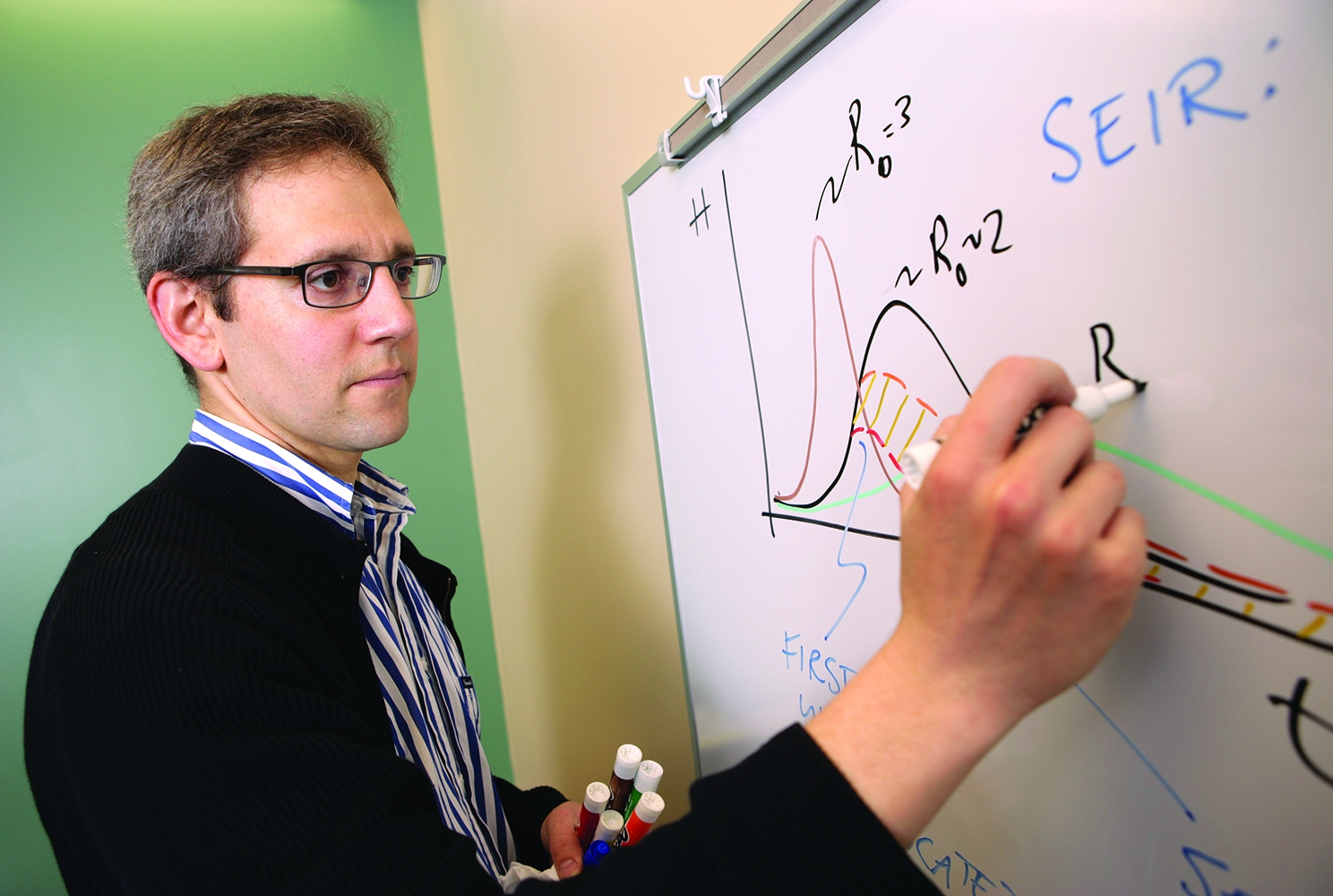He Will Lead Computer-Modeling Efforts to Prepare for Public Health Emergencies
NEW YORK (Oct. 29, 2008) — A leading authority in using computer models to predict and plan for public health emergencies, Dr. Nathaniel Hupert has been named director of the new Preparedness Modeling Unit at the U.S. Centers for Disease Control and Prevention (CDC). He remains associate professor of public health and medicine at Weill Cornell Medical College and associate attending physician at NewYork-Presbyterian Hospital/Weill Cornell in New York City.
In his new role, Dr. Hupert will support preparedness modeling activities both within the CDC and among its federal, state, local, and academic partners with the aim of helping formulate policies to safeguard the public's health before, during and after emergency situations, such as infectious disease outbreaks, natural disasters, environmental exposures, climate change and bioterrorism.
Since 2000, Dr. Hupert has led a number of federally funded projects to develop improved tools and logistics for mass prophylaxis, bioterrorism response, and health system preparedness for surge capacity. His research team's reports and models are available on the Web sites of the CDC (www.emergency.cdc.gov/agent/anthrax/prep) and American Hospital Association (www.aha.org/aha/issues/Emergency-Readiness/berm.html), and are used by states across the U.S. for preparedness planning. Dr. Hupert was one of three academic researchers to serve on the Anthrax Modeling Working Group of the Department of Health and Human Services Secretary's Council on Public Health Emergency Preparedness. He has lectured and given satellite and Web broadcasts for the Agency for Healthcare Research and Quality and the CDC on mass prophylaxis and physicians' role in bioterrorism response.
Dr. Hupert is co-director of Cornell University and Weill Cornell Medical College's joint Institute for Disease and Disaster Preparedness, whose mission is to advance the field of computational public health by applying engineering approaches to a range of public health response logistics problems, from U.S. emergency preparedness to scale-up of HIV/AIDS prevention and treatment in sub-Saharan Africa.
Weill Cornell Medical College
Weill Cornell Medical College, Cornell University's medical school located in New York City, is committed to excellence in research, teaching, patient care and the advancement of the art and science of medicine, locally, nationally and globally. Weill Cornell, which is a principal academic affiliate of NewYork-Presbyterian Hospital, offers an innovative curriculum that integrates the teaching of basic and clinical sciences, problem-based learning, office-based preceptorships, and primary care and doctoring courses. Physicians and scientists of Weill Cornell Medical College are engaged in cutting-edge research in areas such as stem cells, genetics and gene therapy, geriatrics, neuroscience, structural biology, cardiovascular medicine, transplantation medicine, infectious disease, obesity, cancer, psychiatry and public health — and continue to delve ever deeper into the molecular basis of disease in an effort to unlock the mysteries of the human body in health and sickness. In its commitment to global health and education, the Medical College has a strong presence in places such as Qatar, Tanzania, Haiti, Brazil, Austria and Turkey. Through the historic Weill Cornell Medical College in Qatar, Cornell University is the first in the U.S. to offer a M.D. degree overseas. Weill Cornell is the birthplace of many medical advances — including the development of the Pap test for cervical cancer, the synthesis of penicillin, the first successful embryo-biopsy pregnancy and birth in the U.S., the first clinical trial of gene therapy for Parkinson's disease, the first indication of bone marrow's critical role in tumor growth, and most recently, the world's first successful use of deep brain stimulation to treat a minimally conscious brain-injured patient. For more information, visit www.med.cornell.edu.
Lezlie Greenberg
leg2003@med.cornell.edu

